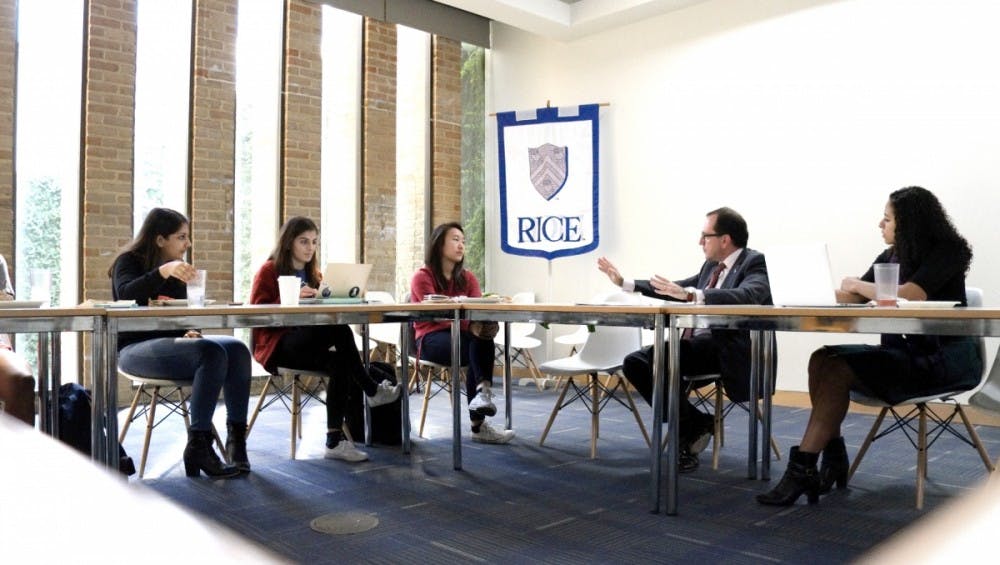Social policy analysis major to replace policy studies major

The School of Social Sciences is introducing a new major to replace the policy studies major in fall 2017 in response to student feedback. If approved by the Faculty Senate at its April 19 meeting, the social policy analysis major will be the first of its kind in the United States, according to Dean of Social Sciences Antonio Merlo.
The central focus of the social policy analysis major is policy design, analysis and communication. In addition to two required math prerequisites, the core curriculum will include five foundation courses focusing on the complexities of social problems and social policy, including health, education, poverty and criminal justice.
According to Merlo, social policy analysis is distinct from policy studies because of its interdisciplinary orientation, its structured curriculum and its emphasis on integrating theoretical instruction with hands-on experiences.
“Social policy analysis will replace the relatively unstructured policy studies major as a clearly structured, stand-alone major,” Merlo said. “The emphasis in policy studies on policy areas will shift to an analysis of social policy interventions.”
According to Merlo, while the policy studies major focuses on the process of creating and implementing policy, social policy analysis addresses specific problems and their policy solutions. The new major will incorporate policy studies’ emphasis on public policy and also include social policy, which focuses on human well-being.
“Graduates will be able to answer pressing questions,” Merlo said. “Which early interventions lead to greater educational attainment for low-income children? Which juvenile rehabilitation programs are more likely to reduce the recurrence of criminal behavior? Without evidence-based research and rigorous evaluations to test ideas, there is no way to know which solutions work and for whom.”
Students who have already matriculated to Rice will still be able to declare policy studies, according to Merlo, but beginning next year new students will not. Merlo said this will lead to a phasing out of policy studies and that existing policy studies students would also be given the opportunity to change major to social policy analysis.
Jones College sophomore Sarah Asson said she plans to change from a double major in policy studies and statistics to the new social policy analysis major if it is approved.
“I am interested in policy research, and this new major allows for more integration of statistics and other applicable skills than the current policy studies major,” Asson said. “I am hopeful this reorganization will lead to more consistent course offerings, because right now there are courses for the policy studies major that haven’t been offered in years.”
According to Merlo, the new major developed primarily due to student input regarding the policy studies major, which supported a shift from policy studies to policy analysis and from public policy to social policy. Since his appointment as Dean of the School of Social Sciences in 2016, Merlo said he worked to create a new academic program with elements of policy studies and emphasizes rigor and diversity.
“The school is well positioned to create a social policy analysis major,” Merlo said. “We have the academic underpinnings of such a program with faculty expertise in research design, qualitative and quantitative analysis, and critical appraisal.”
Merlo said that the curriculum will allow students to apply their knowledge into a hands-on application of social policies in Houston.
“With Houston as our backyard, we have one of the most relevant urban policy labs in the nation,” Merlo said. “Solutions we generate here will not only play a critical role in improving the life chances and well-being of Houston residents but will also provide key insights to other urban environments throughout the country.”
The Social Sciences Undergraduate Advisory Board approved of the major on Feb. 7 and set up 11 meetings in each residential college for Merlo to present information on the new curriculum changes. The advisory board also wrote a letter of endorsement for the major.
“This major will fulfill a much needed service in interdisciplinary thinking as well as benefit each individual department within the School of Social Sciences as a whole,” the letter said.
Merlo said Rice has an opportunity to become a national leader in social policy analysis.
“Ultimately, the primary goal of the new major is to train Rice students to be the first wave of undergraduates with the specialized knowledge, skill and experience to be leaders in the field of social policy analysis,” Merlo said. “By taking a leadership role in this new and increasingly important field, the School of Social Sciences, and Rice University more generally, will enhance its national reputation and visibility.”
This article was edited to add information about what will happen to current policy studies majors and clarify Merlo's comments regarding student feedback.
More from The Rice Thresher

Worth the wait: Andrew Thomas Huang practices patience
Andrew Thomas Huang says that patience is essential to being an artist. His proof? A film that has spent a decade in production, a career shaped by years in the music industry and a lifelong commitment to exploring queer identity and environmental themes — the kinds of stories, he said, that take time to tell right.

Andrew Thomas Huang puts visuals and identity to song
Houston is welcoming the Grammy-nominated figure behind the music videos of Björk and FKA twigs on June 27.

Live it up this summer with these Houston shows
Staying in Houston this summer and wondering how to make the most of your time? Fortunately, you're in luck, there's no shortage of amazing shows and performances happening around the city. From live music to ballet and everything in between, here are some events coming up this month and next!

Please note All comments are eligible for publication by The Rice Thresher.